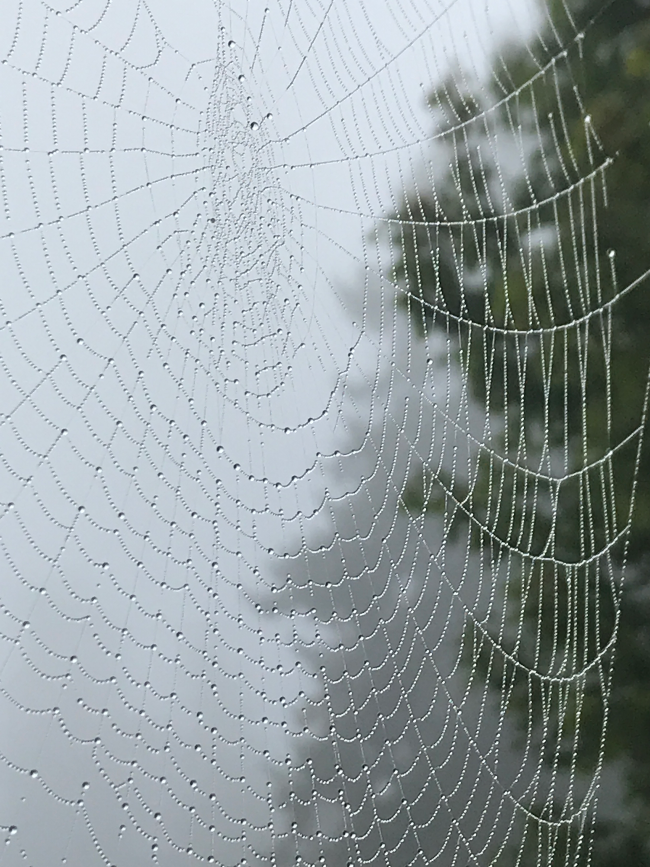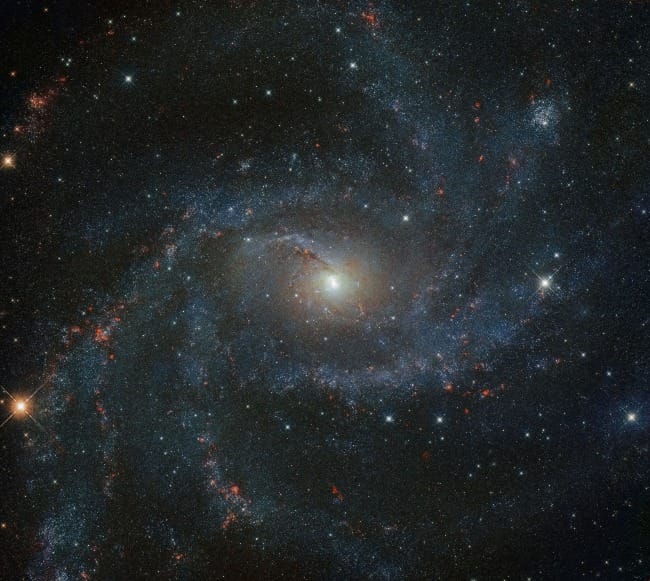To see the connections that exist in this world is essential if we are to live well within it. The poem, Invocation, by Everett Hoagland is a prayer to the Creator to remind us of those connections and live accordingly.
Invocation
by Everett Hoagland
Architect of icebergs, snowflakes,
crystals, rainbows, sand grains, dust motes, atoms.
Mason whose tools are glaciers, rain, rivers, ocean.
Chemist who made blood
of seawater, bone of minerals in stone, milk
of love. Whatever
You are, I know this,
Spinner, You are everywhere, in All The Ever-
Changing Above, whirling around us.
Yes, in the loose strands,
in the rough weave of the common
cloth threaded with our DNA on the hubbed, spoked
Spinning Wheel that is this world, solar system, galaxy,
universe.
Help us to see ourselves in all creation,
and all creation in ourselves, ourselves in one another.
Remind those of us who like connections
made with similes, metaphors, symbols
all of us are, everything is
already connected.
Remind us as the oceans go, so go we. As the air goes, so go we.
As other life forms on Earth go, so go we.
As our planet goes, so go we. Great Poet,
who inspired In The Beginning was The Word…,
edit our thoughts so our ethics are our politics,
and our actions the afterlives of our words.
From "Ghost Fishing: An Eco-Justice Poetry Anthology," (University of Georgia Press, 2018)
Creator God
Architect, mason, chemist. Hoagland establishes the poem upon this foundation: it is the work of a Creator God, whose imagination, skill, and ingenuity, if rightly understood, can only leave us gaping in awe. This maker planned the world, built it, and infused it with life, creating a system of life which is formed from raw parts into a living system that is inextricably tied together.

Its beauty will never cease to be awe-inspiring. I was driving along a mountain road once when the brightest double rainbow I have ever seen appeared. I pulled off for a better view and noticed that every other car from both directions also pulled off. It stopped everyone in their tracks. This world, made and yet still being made, is a work that will always be able to take our breath away. Invocation invites us to admire both the creation and the Creator—who took raw parts and mixed them into this creation of connected life.
At the center of this creation, the poem reminds us, is love. If we claim to love God, and this world (all of it, not just human inhabitants) is made with his love, it follows that we will love the world as well. This love is not just because we are dependent upon it (which we are) but because God made it with love and care.
Sustainer God
God did not step away once he had made the world, but, according to the poem, continues to hold the "Spinning Wheel" of the world in his hands. He is still everywhere present within it, holding it together. In the words of the poem, he is the "Spinner." In the words of Colossians 1:15-17:
The Son is the image of the invisible God, the firstborn over all creation. For in him all things were created: things in heaven and on earth, visible and invisible, whether thrones or powers or rulers or authorities; all things have been created through him and for him. He is before all things, and in him all things hold together.
God is in the weave of the small and the big; this is not a hands-off god, but a god who built it all from the ground up, and remains at work, carving the land with glaciers, "whirling around us." This world is a spinning, changing, moving one, a work of continual creation.

Transforming God
Although we are used to thinking individualistically, the truth is that we are not independent creatures—we are intimately part of this creation. If the water is gone, we thirst. If the air around us becomes polluted, we, breathe it in. If other life forms thrive or die, it affects us. If we thrive or die, it affects others. We cannot live without our planet. In a world full of ideas and words, we must see our connection to this grounded world.
According to the poem, we need our creator/Great Poet/the Word to help us to see the strings that tie us to all of it. If we see the connections intrinsic in the design of this world, we know that the well-being of things "outside" of ourselves affects us as well. If we are all drinking from the same water, poisoning your water is also poisoning my water.
Beyond that, we need The "Great Poet"/"the Word" to help us, remind, edit us so that we have the same congruence between word and action that we see when God said, "Let there be..." and there was.
In the beginning was the Word, and the Word was with God, and the Word was God. He was with God in the beginning. Through him all things were made; without him nothing was made that has been made. John 1:1-3
For those who believe in a God who creates, sustains, and redeems this beloved creation, congruent action must follow our awareness of those connections. In the final words of the poem:
edit our thoughts so our ethics are our politics,
and our actions the afterlives of our words.
I find this final phrase lovely, and also very challenging. Although I try to live with integrity, how often do my words die without an afterlife of action? Too often, I'm afraid. So today, I am thinking about how to better align my words and my actions, and I invite you to do the same.
This might mean living out a stated concern for particularly vulnerable humans or a particularly vulnerable ecosystem or it might mean living out a stated concern for what flows from your driveway into your watershed. Whatever the starting point, in this time of many words, it is good to remember that everything in this world is already connected, and we are called to live congruently with that truth.
Reflection Questions: Where do you particularly see the "Spinner" holding the world together? Are there places where you want to better align your actions with your words and beliefs concerning ecological discipleship?
Louise
Feel free to contact me directly at info@circlewood.online.
